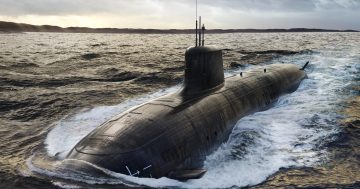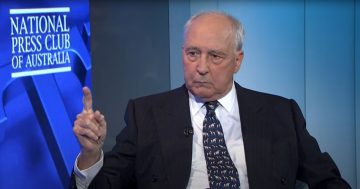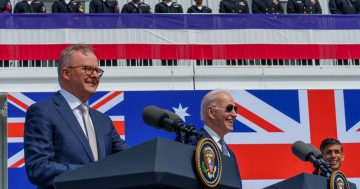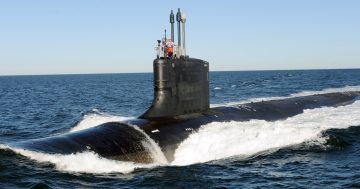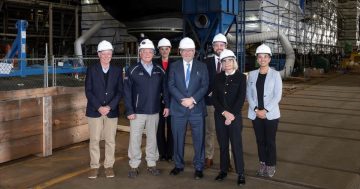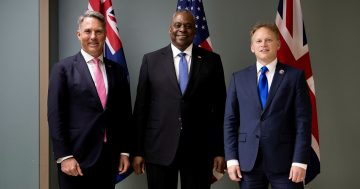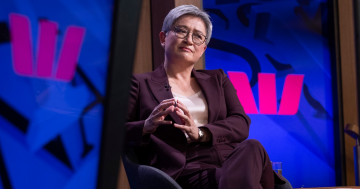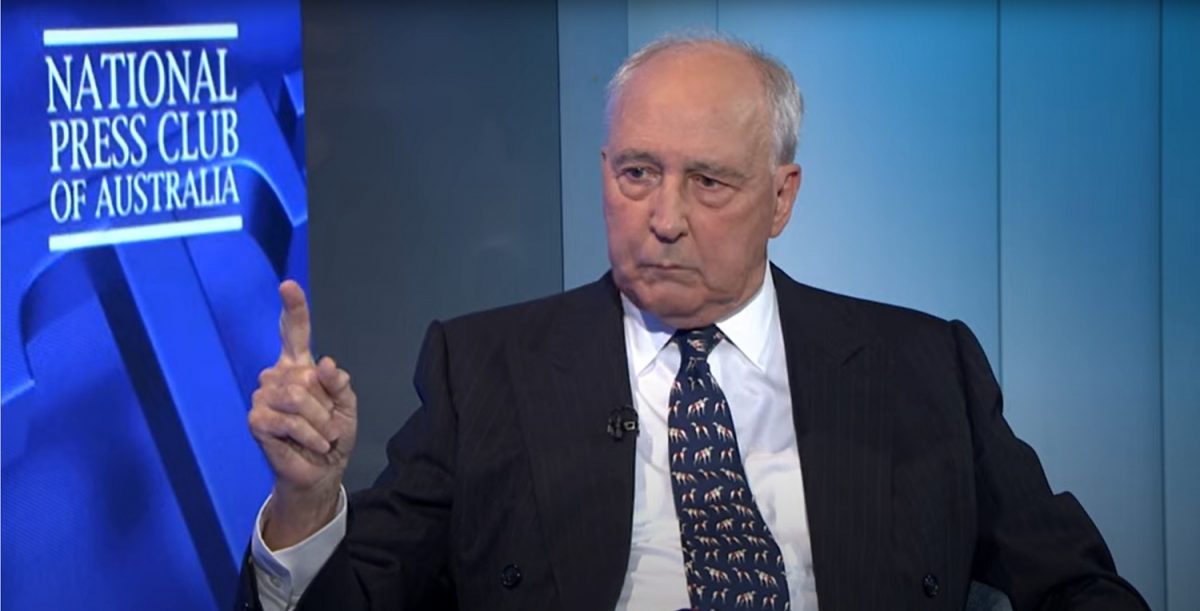
Former prime minister Paul Keating was handing out free character assessments at the National Press Club. Photo: Screenshot.
Does anyone else find it surprising that one of the few voices questioning the Australian Government’s multi-billion dollar submarine deal comes from its most revered living statesman?
Paul Keating was in vintage form when he unloaded at the National Press Club on anyone and everyone who dared to speak in support of the $368 billion AUKUS subs deal with the US and UK, labelling it “the worst in all history”.
Whatever you think of his arguments, and there was no shortage of experts and commentators, and Labor Party colleagues lining up to shoot down the former Prime Minister’s claims, Keating’s flamboyant takedown of Anthony Albanese, Penny Wong and Richard Marles provided a glimpse into the heady days of Australian politics.
Of course, some these days will label it bullying, but that’s a discussion for another day.
There does seem to be a touch of Boys’ Own Annual about this submarine deal, a lot of hairy-chested sabre rattling at a threat we are told is very real and which we need to be alert but not alarmed about – for now.
We are also told to believe that having a handful of nuclear-powered submarines patrolling our coastlines will be enough to deter the Chinese from attacking us. We have almost 60,000 kilometres of coastline, the sixth-longest in the world.
Let’s do the math (as the Americans say). Assume, conservatively, that only a third of our coastline would be vulnerable to a Chinese attack. That’s 20,000 kilometres, patrolled by eight submarines, so 2500 kilometres to be watched by each sub.
We must also accept that by the time these subs finally take to the water in the early 2040s, they will still be as relevant and cutting-edge as we see them today. Technology moves so quickly, and the Chinese are at the forefront. One wonders what defence departments will look like by 2050.
Former Australian diplomat and international security and strategy specialist David Livingstone claims that by the 2050s, it will be surprising if there will be any place for crewed submarines at all.
“The oceans are becoming transparent through the development of new sensors. Cheap, ubiquitous smart sea mines, sensors and UUVs [Unmanned underwater vehicles] will render them obsolete,” Livingstone wrote.
Another former Prime Minister, Malcolm Turnbull, also has doubts about the value of the partnership. His main beef was that, in his view, the AUKUS deal was nowhere near as good as the partnership Australia had lined up with the French before it was scuttled by his political assassin, Scott Morrison. Or, as Turnbull put it, “recklessly cancelled”.
More expensive, more drawn out and more risky, Turnbull said.
Keating, Turnbull and Livingstone may all be wrong, and maybe this $368 billion deal is the partnership we had to have, guaranteeing the safety and the future of our children and our country.
But it’s such a big deal, such a big outlay, surely it deserves more scrutiny and more discussion than we have had. Many readers may wonder why that sort of money could not be spent on more pressing issues closer to home.












